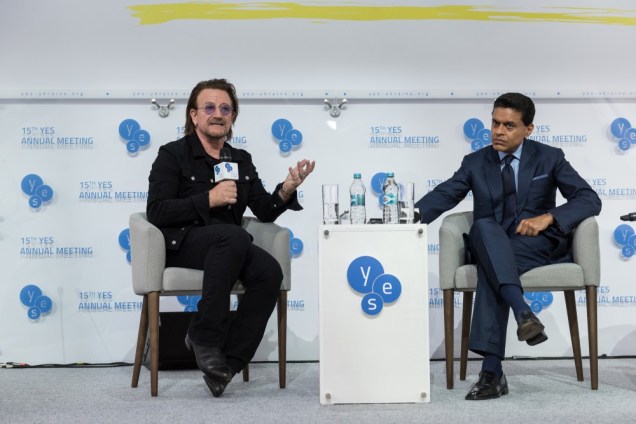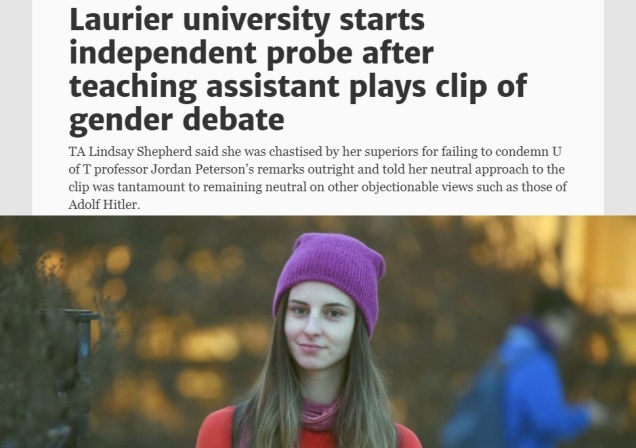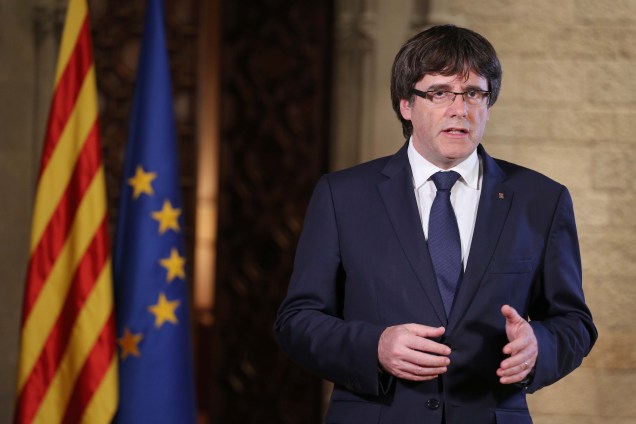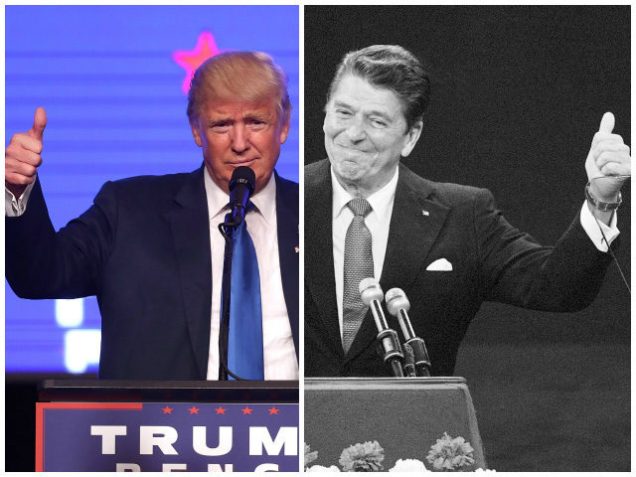
How to solve the “scourge” of European populism? CNN’s Fareed Zakaria makes a pilgrimage to Kiev, to consult with the geopolitical oracle known as Bono
Every now and then you read an article so astonishingly un-self aware, so counterproductive, so open to attack and ridicule on multiple fronts that it is difficult to know where to begin. The latest writer to evoke this strong reaction is Fareed Zakaria, CNN’s in-house intellectual and self-touted expert on international issues and foreign affairs.
The headline of Zakaria’s latest asinine column in the Washington Post? “I wanted to understand Europe’s populism. So I talked to Bono.”
Zakaria has apparently turned his formidable mind towards the rising backlash against years of technocratic supranational rule which favored delivering a stream of perks and opportunities to urban cognitive elites while leaving the rest of their citizens to face the vagaries of globalization, automation, outsourcing and supranationalism unsupervised, unrepresented and unprotected. Of course, Zakaria does not view the problem in these terms – he would doubtless describe it as a mass turning away from reason and rationality, and a refusal on the part of ordinary people to gratefully follow the course carefully laid out for them by their intellectual and moral betters.
And so when faced with a rise in “populism” around the world, Zakaria doesn’t engage in any personal introspection as to how he and his circle might have brought us to this moment. He certainly doesn’t reach out to any of the discredited technocrats and ask searching questions of leaders like Hillary Clinton, David Cameron or Tony Blair. No; Fareed Zakaria hopped on a plane to Kiev, where he hunkered down with U2 singer and Woman of the Year Bono, who – as we all know – is the premier global expert on the subject of populism, its causes and its cures.
Again, this is one of those articles where one can scarcely make it to the end of each paragraph without wanting to fly to Fareed Zakaria’s New York home for a personal one-on-one summit with the guy. I read the thing and just sat staring at the screen for a good five minutes, incredulous that anybody could show such supreme ignorance – and worse, lack of curiosity – about the other perspectives he pretends on his television show to care about.
From the top:
When confronting a challenging problem, it’s sometimes useful to listen to someone who looks at it from an entirely different angle. That’s why I found it fascinating to talk about the rise of populism and nativism with Bono last weekend at a summit in Kiev.
Naturally. I hop on a plane to see Bono at least once a month, whenever I am faced with a personal or geopolitical quandary, and I am sure that you do the same. The man is just a font of wisdom. And “different angle”? Bono believes in and champions exactly the same supranational, technocratic and remote system as Zakaria. The man waves an EU flag around on stage in his concerts, for heaven’s sake. Yet Zakaria has the nerve to portray traveling thousands of miles to hear his own opinions reflected back at him from an aging rock-star as a fearless search for alternative points of view.
The Irish singer-activist-philanthropist sees the same forces that we all do, particularly in Europe, but he zeroes in on something intangible yet essential. The only way to counter the dark, pessimistic vision being peddled by nationalists and extremists, Bono says, is to have an uplifting, positive vision. Homing in on the trouble in his part of the world, he told me, “Europe needs to go from being seen as a bore, a bureaucracy, a technical project, to being what it is: a grand, inspiring idea.”
And immediately the bias betrays itself. At a time when the European Union’s failures and the hubris of EU leaders are dooming entire generations of youth to chronic unemployment, when their incompetence at defending the union’s frontiers has led to an inward wave of illegal migration which no voters sanctioned and at a time when the entire European project stands either discredited or seriously questioned in a whole swathe of member states, Fareed Zakaria’s first thought isn’t whether some of the EU’s critics might have a point worth hearing. His first thought is how European elites can best double down on their vision and make their recalcitrant citizens realize the error of their ways and drop their inconvenient resistance to further political integration.
More:
To that end, Bono’s band, U2, has been choosing a moment during its concerts to unfurl — wait for it — the flag of the European Union.
How dreadfully original. He should do a duet with EU supergirl.
“Europe is a thought that needs to become a feeling,” Bono wrote in a recent op-ed in the German newspaper Frankfurter Allgemeine. He is trying to give that feeling meaning. To him, Europe is about the ability of countries that were once warring to live in peace, for people of many different lands and languages to come together. “That idea of Europe deserves songs written about it, and big bright blue flags to be waved about,” he wrote.
This same tedious and over-simplistic point has been made by a thousand teenage left-wingers with the EU flag painted on their faces, not to mention legions of C-list cable news talking heads, yet when Bono says the same thing it becomes profound and original insight worthy of inclusion in a Washington Post feature article. Remarkable.
But here’s the bit where Zakaria’s powers of analysis really desert him:
Bono admits that Europe is a “hard sell” today. The continent is ablaze with populism. These forces have taken control in Hungary, Poland and Italy and are steadily gaining ground elsewhere, including Germany and Sweden. It seems that everywhere the fuel is the same: hostility toward strangers, foreigners, anyone who is different.
There is absolutely zero attempt here to distinguish between actual xenophobia and racism on the one hand, and legitimate concerns about a lack of democratic control over immigration or enforcement of the rule of law against illegal immigrants on the other. But of course in Zakaria’s mind there is no distinction to make. Merely objecting to massive expansions of inward immigration ushered in by governments without seeking popular consent is every bit as racist and worthy of condemnation as donning a white robe and lighting crosses on fire. Simply asking questions about the impact of high levels of migration on societal cohesiveness and public service provision is taken to be the sufficient mens rea to establish guilt.
And so Fareed Zakaria, ventriloquizing Bono the Philosopher King, doesn’t seek to dig into a hugely complex issue featuring a cast of thousands of actors and hundreds of policies and sub-policies. He doesn’t attempt to separate actual racism, prejudice and discrimination against people based on their national or ethnic background, from legitimate concerns about how the EU’s leaders and national leaders have stubbornly implemented their own view of the open, multicultural society without consulting let alone seeking the approval of those they nominally serve. They are all lumped together as “hostility toward strangers, foreigners, anyone who is different”, a blanket condemnation which allows people like Fareed Zakaria and the political masters for whom he covers to press ahead with their existing policies without feeling the need to justify themselves or win public approval. After all, one doesn’t need to make accommodation with racists.
Zakaria then goes on to paraphrase Francis Fukuyama:
The founders of the E.U., he argues, spent too much time building the technical aspects of the project — laws, rules, tariffs. They neglected to nurture an actual European identity, something people could believe in not for rational reasons but for emotional and idealistic ones.
This is one of only two perceptive points made in the entire article, and it comes courtesy of a third party. This is absolutely correct – the EU’s founders and subsequent leaders adopted an unapologetically antidemocratic “if we build it, they will come” approach to constructing their new European superstate. They figured that if only they could get all of the institutions set up and orchestrate enough power grabs from member states to Brussels, the entire project would be a fait accompli and ordinary people would simply have to make their peace with taking orders from elsewhere, and being represented by institutions to which they felt no allegiance and often barely recognized.
But Fareed Zakaria doesn’t pause to marvel at this slow-motion, silent coup or acknowledge that its opponents may have a point in at least raising concerns about it. He and Bono simply look forward to the time when the various peoples of Europe have been successfully re-educated and taught to love their new overlords:
According to the latest European Commission surveys, 71 percent of Poles say they feel attached to the E.U., more so than Germans or Spaniards, while 61 percent of Hungarians feel attached, outstripping the French, Swedes and Belgians. The problem is, it isn’t a deep, emotional bond — they are three to four times more likely to feel very attached to their own nation than to the E.U.
Apparently it is a problem that we do not feel attached to these institutions built largely without our consent, input or oversight. It is problematic, according to Bono and his acolyte Zakaria, that people object to vast new and powerful layers of government constructed at a geographic and political level that we naturally do not feel strong allegiance to because of entirely normal cultural and historic differences. It is something, goes this argument, that must be overcome or suppressed for the Greater Good.
Ordinarily I would enjoy sitting back and watching Fareed Zakaria’s smugness, moral certainty and profound lack of curiousness about people from outside his hermetically sealed intellectual bubble come back to bite him. But I cannot do so, because Zakaria’s loss and humiliation will be all of ours, too. None of us stand to benefit if the worst and harshest elements of the populist revolution take over our politics and trample over our imperfect but essential institutions. A proliferation of Viktor Orbans throughout Europe is not a price worth paying to see the smug self-satisfied smile wiped off Zakaria’s face.
And this is the frustrating thing. In the fight against racism, xenophobia and authoritarianism, we should be allies. But Zakaria will not engage in good faith with the opponents of technocratic, managerialist, supranationalism. He is unable or unwilling to distinguish between discomfort and disagreement with the direction and destination of European political union and “hostility toward strangers, foreigners, anyone who is different”. Because Fareed Zakaria and a hundred prominent journalists and politicians like him are incapable of distinguishing between legitimate criticism of the status quo and support for the worst elements of the populist revolution, they are able neither to call their own side to account for their failings, nor chart the kind of compromise we ultimately need to preserve the benefits of globalization and internationalism with the rightful demand of ordinary citizens for democratic control over their destinies.
This is the real conversation – and I have been saying this for years now – that we urgently need to be having. We need our smartest minds and those with social capital to come together to develop answers to these big questions. But instead, almost to a person, they would rather zip around the globe from Davos to Aspen to Kiev, commiserating with themselves, hobnobbing with aging rock stars, stroking their metaphorical beards and wondering why the rest of their fellow citizens stubbornly refuse to fall into line and get with the program.
Fareed Zakaria will no more learn about the origins of and solutions to populism from Bono than he will learn about bioethics from Justin Bieber. That he felt no sense of shame putting his name to this execrable article in the Washington Post leaves me with a feeling of profound frustration and despair.
But Zakaria is not alone – indeed, his article is emblematic of the cognitive bias which runs through the upper echelons of the corporate, cultural, educational, governmental and journalistic institutions which together set society’s direction of travel (and in the latter’s case, report back on the situation with a laughably false veneer of objectivity). The only difference between Fareed Zakaria and the rest of them is that he was stupid enough to print what the rest of them think in private on the pages of the Washington Post.
Two years after Brexit, nearly two years after Trump and still the Smartest Guys In The Room™ exhibit no self-awareness, no introspection, no respect for opposing viewpoints and no new ideas beyond “more Europe, more technocracy, more unaccountable supranationalism, and if you don’t like it then there must be something wrong with you”.
Zakaria can commune with Bono all he wants, but it will not save them or us from the slow-motion collision with reality that the West is now experiencing. Yet he prattles on in the Washington Post oblivious to the danger because in Fareed Zakaria’s mind, he and the people he interviews cannot be wrong about anything, and theirs is the only valid perspective.
In the words of Evelyn Waugh, “They were too old and they didn’t know and they wouldn’t learn. That’s the truth.”

–
Agree with this article? Violently disagree? Leave a comment.
Follow Semi-Partisan Politics on Twitter, Facebook and Medium.









